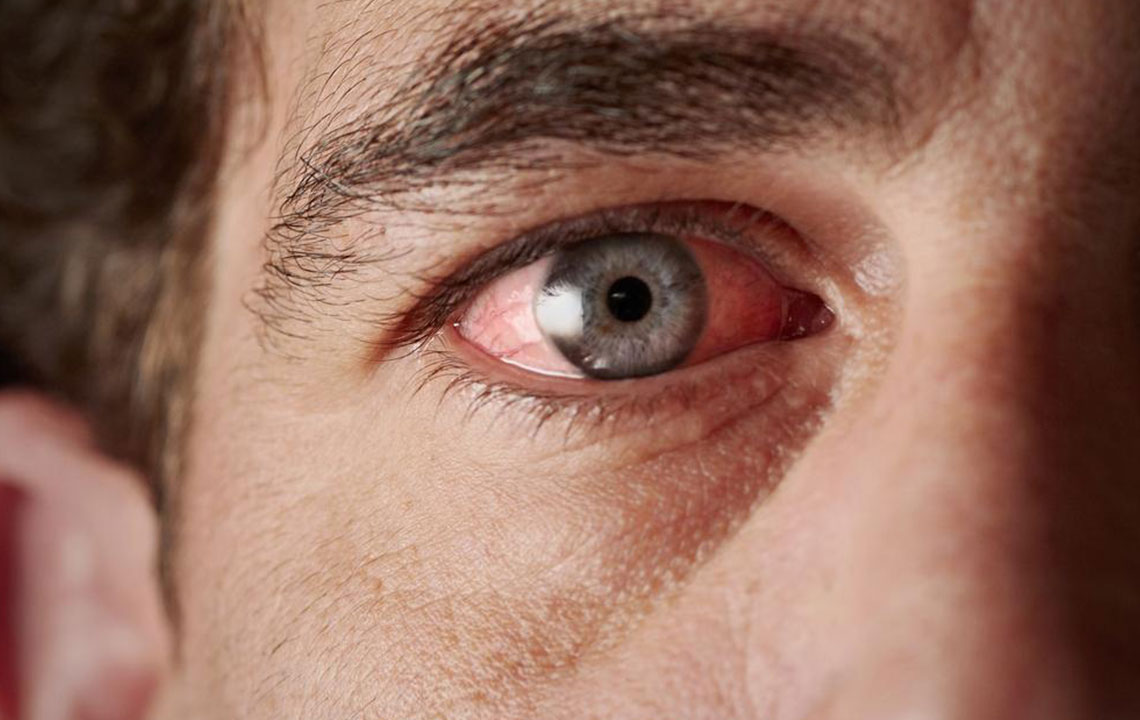Effective Treatment Methods for Curing Red-eye

One’s eyes have to face the brunt of the consequences of one’s daily adventures. Be it dust storms, heavy rainfall, freezing temperatures or the extreme heat; the eyes have got to bear it all. All this tends to take a toll on the windows of our soul.
The cause of red eyes may vary from an infection to a foreign substance or object entering your eyes, an allergy, or the blood vessels on the eye’s surface dilating or expanding, and sometimes, they may even burst. Red-eye is mostly temporary and clears up quickly, but one must understand the causes for it before starting with the red eye treatment:
Conjunctivitis (pink eye)
This is an inflammation of the eye, which appears in three forms: allergic, viral and bacterial, and is highly contagious. Your doctor will diagnose the specific cause and advise you on how to treat it.
Allergens
Pollen, mold and pet handlers are some of the most common allergens that affect one’s eyes. Histamines are released by the body that dries the eyes, causing blood vessels to swell.
Blepharitis
Blepharitis is a common inflammatory disorder that also causes red eyes. It may also cause burning, flaking, and itchiness.
Subconjunctival hemorrhage
Similar to a minor bruise that one experiences on the skin, it is a blood-colored patch in the eye caused by coughing, sneezing or a minor bump. The use of blood thinners and high blood pressure increases the chances of its occurrence.
Different Methods of Red Eye Treatment
Red-eye treatment depends on the cause of the red eye and involves the following practices:
Warm compress
Use a towel soaked in warm water and ensure to wring it out well. Keep the temperature at a reasonable level, as the area around the eye is sensitive. Cover your eyes with the towel for 10 minutes. This red eye treatment depends on the heat from the towel to increase blood flow to the eyes and also increases the oil production on the eyelids, to create more lubrication for the eyes.
Warm compress is proven to be an effective red-eye treatment for those suffering from Blepharitis.
Cold compress
An opposite approach to a warm compress can also be tried. A towel soaked in cool water and wrung out can prove to be a short-term red eye treatment. It can help to reduce any itchiness or irritation and relieve any swelling. The cold water reduces the flow of blood to the eyes and thus helps in treating the inflammation.
The usage of ice or freeze packs is another way of using the cold compress for red eye treatment. In case one doesn’t have a freeze pack, then use some ice cubes placed in a clean cloth and place it over the eyes for 4 – 5 minutes. Viral and allergic conjunctivitis can be soothed and benefitted by the usage of a cold compress.
Eye drops
One must always consult their doctor before using eye drops as a red eye treatment. For different problems, there are different types of eye drops. For example, a blood vessel-constricting eye drop will be ineffective as a red eye treatment for one wearing contact lenses, as the eye drop will not be able to pass through the lenses.
Eye drops with antihistamines are ideal for red-eye treatment that occur due to allergies. Dryness and redness normally occur with antihistamines and hence this should be used with artificial tears. Certain eye drops that claim to fight bacteria may cause an allergic reaction, because of the preservatives in them, making the condition even worse.
An important feature of eye drops is that they work by constricting the blood vessels in the eyes, thus reducing the redness. But apart from the red eye treatment, one must refrain from using them to prevent the eyes getting dependant on them.
Single vial preservative-free eye drops are the most natural, hygienic and effective for red-eye treatment.
Other Treatment Methods
For infections, one must consult the doctor, as he will prescribe eye drops with antibiotics.
Long-Term Red Eye Treatment
- While the above mentioned are more of short-term, red eye treatment, the following are more of long-term, to ensure that you get a more permanent solution:
- Change your contacts and contact solution, if you’re facing perpetual irritation and redness
- Make sure your diet has less of inflammatory foods such as processed foods, dairy products, and fast foods. Ensure your diet has more of omega-3 fatty acids containing foods, such as fish and nuts
- Be aware of your surroundings and try not to be in an environment surrounded by pollen or smoke. Lastly, always remember to consult your doctor first, before commencing any form of red eye treatment, to prevent it from deteriorating further.



